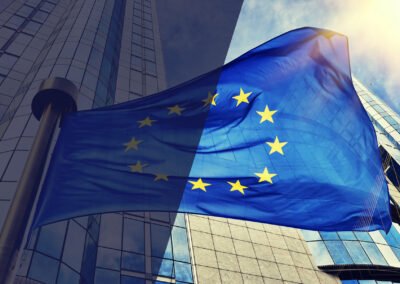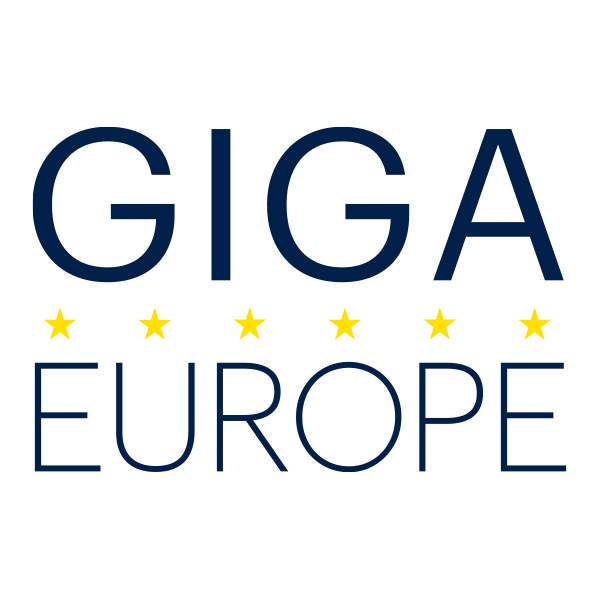On the Digital Highway – Destination: a competitive Europe
by GIGAEurope
Brussels – 06 February 2024
Advanced Gigabit and 5G connectivity are inextricably linked to Europe’s successful digital transition and competitiveness in the global digital economy. The Commission’s report on the long-term competitiveness of the EU emphasises the profound impact of digitalisation on the EU economy, as it boosts efficiency and innovation. In a global economy, one of the EU’s greatest assets is its single market. Future connectivity policy frameworks should prioritise a predictable regulatory environment for cross-border services and reduce current barriers to a true Digital Single Market.
At odds with the increasing EU policy focus on competitiveness, dynamic factors have long received insufficient attention in EU telecoms merger assessments. A primacy of static price effects, over dynamic impacts, risks an incomplete approach that neglects to take all parameters of competition into account. Other dimensions of consumer well-being, such as network availability, quality, and resilience, also assume relevance in a digital context.
Furthermore, a recent economics paper suggests that ‘four-to-three mergers’ have in fact had little impact on prices. This report also reveals that the ‘four-to-three mergers’ since 2010 appear to have provided customers with lower quality-adjusted prices and better value for money.
Clear and adaptable regulation to support investment and innovation
Connectivity providers are heavily investing in rolling out Gigabit networks – fixed and mobile. However, networks are subject to large economies of scope and density such that in any geographic market only very few may reach the minimum economic scale needed to earn a reasonable profit – efficient investment is recognised in the European Electronic Communications Code as an objective for regulatory intervention.
Given the objective of efficient investment that allows firms to earn a reasonable return on their capital, it may be necessary for regulators and competition authorities to accept a more concentrated market than they would prefer. Decisions that force a market structure, designed around short-term demand-side outcomes, may produce long-term results that are harmful to consumers if firms cannot earn a reasonable return and so exit the market.
Connectivity providers participate in a tightly regulated market. As the digital ecosystem widens, it is essential that connectivity providers have the legal certainty and flexibility to explore new business models to support future investment, such as network-as-a-service and tailored offerings for businesses.
As key enablers of the digital transition, it is crucial for connectivity providers to have the flexibility to explore new modes of offering services and new commercial partnerships to create future possibilities of income and innovation. This implies a need to move away from a historically siloed policy approach to digital markets and for regulators to take a more dynamic ecosystem-level perspective.
Leveraging infrastructure competition via technology neutrality
The principle of technology neutrality is a key building block in the EU regulatory framework for electronic communications, with its relevance re-confirmed in the European Electronic Communications Code and the Digital Decade Policy Programme.
The most effective path to full Gigabit coverage is to leverage the innovation dynamics of market-based competition between all Gigabit technologies (i.e. fibre, Hybrid Fibre Coax/DOCSIS 3.1, 4.0 and 5G). Infrastructure competition remains a key driver of VHCN investment in Europe and technology neutrality allows for optimal connectivity solutions to be found and tailored to the variety of local infrastructure situations across the EU. It supports a cost and time efficient path to the achieving the Digital Decade targets.
Europe’s green transition only possible through greater investment and innovation in the telecommunications sector
The proximity of irreversible climate-tipping points is reinforcing the urgency of the digital transition. Telecommunications companies have made significant strides in energy efficiency and carbon reduction. The evolution of connectivity technologies encompasses significant sustainability enhancements. The transition to 5G technology brings about a remarkable 90% increase in energy efficiency when compared to earlier generations of mobile networks.
Gigabit connectivity also enables mass uptake of digital solutions. These technologies can potentially reduce global greenhouse gas emissions by 9% by 2030. Gigabit speed networks provide more scalable and reliable connectivity that enables a multiplicity of energy-efficient, carbon-reducing solutions, such as smart buildings and smart manufacturing.The ICT sector could deliver emissions savings estimated at seven times the growth in its own carbon footprint between 2019 and 2030.
Accelerating the digitalisation of EU businesses
The Digital Decade Programme sets a 75% target for technology uptake by enterprises. Recent EU projections for 2030 suggest that only 66% of businesses will adopt cloud services, 34% will engage with big data, and 20% will implement AI. Currently, one-third of Europeans lack the digital skills required in most jobs, and over 70% of companies report a lack of staff with adequate digital skills as an obstacle to investment. This underlines the need for clearer and more ambitious roadmaps and more public-private collaboration initiatives that incentivise the uptake of digital technologies.
A digitally-engaged EU culture
EU businesses and citizens are at the heart of the digital ecosystem. However, the Digital Decade Report reveals that 46% of Europeans, particularly older people, still lack basic digital skills, hampering their use of digital technologies for everyday tasks and exposing them to harmful online practices. Based on current trends, only 59% of the population would have at least basic digital skills by 2030, significantly lower than the 80% target.
Europe also faces a shortage of digital experts who can develop cutting-edge technologies for the benefit of all citizens, the State of the Digital Decade Report shows insufficient progress in the EU target for ICT specialists. This calls for a multi-dimensional and inclusive action plan, that builds on momentum from the Year of Skills, with scaled digital literacy initiatives and dynamic mechanisms for tracking progress.
The forthcoming Digital Networks Act offers a unique opportunity to future-proof EU connectivity policy to deliver the greatest value for European society – in support of the EU’s overarching ambitions: technology leadership, competitiveness, climate neutrality, and resilience.
The @EU_Commission report on the Future of Connectivity Consultation provides data to validate perceived industry trends and challenges. Lawmakers must revisit policies that relate to spectrum, consolidation, and fragmentation. These are barriers to a true #digital single market. pic.twitter.com/uRS48vEUWn
— GIGAEurope (@GigaEurope) November 22, 2023
We are experiencing a shift within the electronic communications sector. #Connectivity is increasingly linked to achieving the EU’s socioeconomic and climate goals. 🇪🇺Europe must accelerate the process of bringing homes and businesses ultra-fast connectivity.#5gadvanced #IoT pic.twitter.com/3LcqsGPUxg
— GIGAEurope (@GigaEurope) November 21, 2023
RELATED ARTICLES

Do We Have All the Right Networks for the Future?

Be Courageous, Confident, & Curious: Insights for Women in ICT

EU Connectivity Needs Fast Rollout – Policies Must Aid Objectives

Interconnecting the Connectivity Talks

The EU made the case for digital – now skills must follow

Precision Agriculture: Leveraging digital tools to respond to a dual imperative

Enabling the Enablers: A Path to Europe’s Green Transition

How to ensure no European is left behind?

How connectivity can help bridge the digital trust gap

Capturing Europe’s Connectivity Momentum

